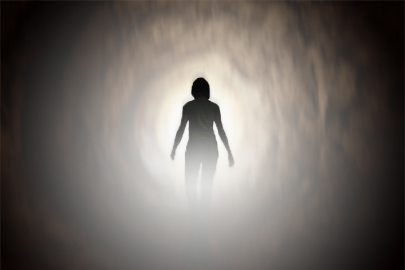Yesterday, a study was announced with a headline that didn’t fit the results. That’s very common. But what was strange was that a few proponents of the study seemed to hang their hats on the headline. I wonder if they actually read the same study I did?
The largest ever medical study into near-death and out-of-body experiences has discovered that some awareness may continue even after the brain has shut down completely.
It is a controversial subject which has, until recently, been treated with widespread scepticism.
But scientists at the University of Southampton have spent four years examining more than 2,000 people who suffered cardiac arrests at 15 hospitals in the UK, US and Austria.
And they found that nearly 40 per cent of people who survived described some kind of ‘awareness’ during the time when they were clinically dead before their hearts were restarted.
Other media outlets followed suit with misleading headlines:
- “Life after death? Largest-ever study provides evidence that 'out of body' and 'near-death' experiences may be real”
- Scientific Breakthrough Suggests There Is Life After Death
- Scientific research finds that life after death is possible
- Life after death is real, British scientists confirm (Whoa! That one takes the prize!)
Unconventional theorist Graham Hancock seemed mighty smug about it:
Dr. Sam Parnia, who headed this study, has done such prospective studies before. He suggests that the brain may "live" on minutes or hours after "death". That is interesting, but not paranormal. Let’s see what the study showed.
Firstly, it showed the alarming rate of death from cardiac arrest (CA). 84% of the people who were admitted to the hospital did not survive. An additional proportion who qualified for the study were too ill to participate. So, this pared down the study population substantially. The n value for the first round of interviews was 140 patients. Of those 140, 55 declared they had some perception of awareness during their CA event. CA means that the patient was documented to have no heartbeat or respiration. During this time, there is insufficient blood flow to the brain; no consciousness.
Perception was investigated in 101 patients who got to the second stage of the study which was an in-depth interview. 55 of those reported perceived awareness or memories. Questions from a standard NDE scale were used to determine if their experiences fit with the description of a "near death experience". The greatest responses were to the questions “Did you have an impression that everything happened faster or slower than usual?” (27) and “Did you have feeling of peace or pleasantness?” (22). 13 respondents said they felt “separated from their body”.
To test for "out of body" observation claims, each participating emergency room (15 in the UK and Austria) placed shelves with images in areas where CA resuscitation was likely to occur. These images were only visible from high above. This particular test did not work out. Many people had their medical crises outside of these shelved rooms, including the one person who experienced floating over his body. This individual reported events that the researchers confirmed as accurate. However, they were really not that unique. It did not seem detailed enough (as would identifying the hidden image on the shelf). Dr. Watt also called it “non-convincing” and commented:
Basically the objectively verifiable test of awareness was hidden images on shelves. The one 'verifiable period of conscious awareness' that Parnia was able to report did not relate to this objective test. Rather, it was a patient giving a supposedly accurate report of events during his resuscitation. This included hearing an Automated External Defibrillator machine. But it is possible that he had previous experience of such machines, for instance from watching medical dramas on TV. So was he recalling something from a period of unconsciousness, or was he possibly reconstructing a plausible sequence of events based on memory and prior life experience?
~Dr. Caroline Watt
This study does not provide solid support for Parnia’s ideas about consciousness existing for hours. In these cases of reported awareness, it was minutes or seconds. This is intriguing but not as incredible as headlines suggest.
No where in the article does it mention “life after death”. At most, it is suggestive that something is going on in the brain in this state we do not understand. It’s even a stretch to say it is suggestive of the brain being separate from consciousness.
The ultimate purpose of the study was somewhat unclear in that the conclusions discussed how these experiences, which were very rare, might contribute to post-traumatic stress disorder in CA survivors. I’m sure they hoped it would provide evidence for greater potential of the mind and reality of out-of-body observations. But it didn’t.
Mr. Hancock, there was simply nothing here to spin.
http://dx.doi.org/10.1016/j.resuscitation.2014.09.004



